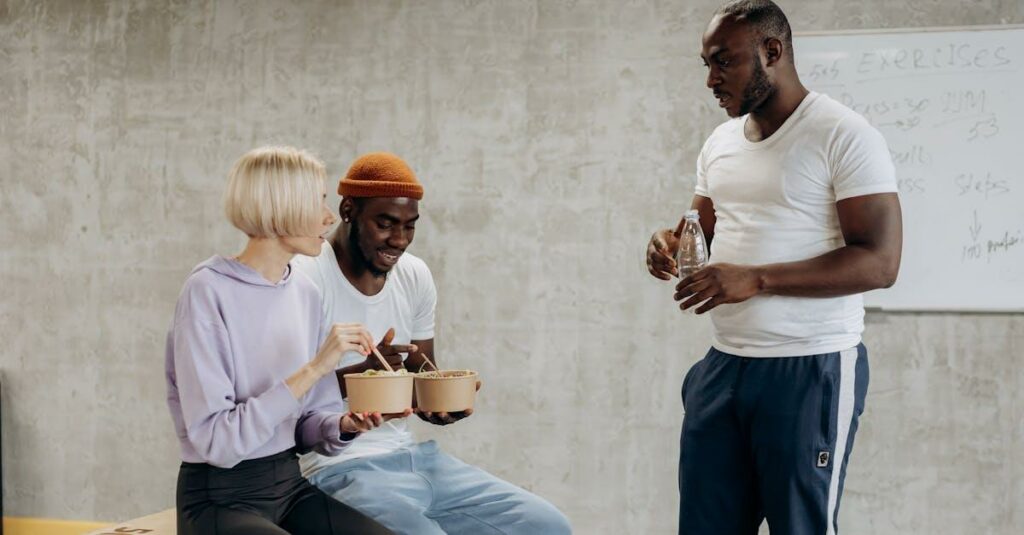Recovering from surgery can feel overwhelming, but I’ve found that community traditions often provide the support we need to heal both physically and emotionally. From meal trains to group meditation sessions, these practices bring people together and create a nurturing environment for recovery. They’re not just about kindness—they’re backed by research showing how social connections improve healing outcomes.
What’s fascinating is how these traditions vary across cultures yet share a common goal: fostering wellness. Whether it’s a neighborhood rallying around someone with home-cooked meals or a faith group offering prayer circles, these acts of care remind us we’re not alone. According to the National Library of Medicine, social support significantly enhances recovery by reducing stress and promoting a sense of belonging.
Let’s explore how these time-honored practices can play a crucial role in post-surgery wellness and inspire us to build stronger, more compassionate communities.
Understanding The Role Of Community In Recovery
Community involvement accelerates recovery by fostering emotional and physical well-being. Support networks reduce feelings of isolation and encourage a positive, proactive healing process, as highlighted in studies on post-operative care. Social interactions reduce stress, which can lead to faster recovery and better mental health outcomes.
Collaborative efforts like organized group meals or sharing specialized resources, such as bariatric recipes tailored to post-surgery dietary needs, address both nutritional and emotional requirements. These traditions create connections while ensuring patients have access to practical recovery essentials.
Cultural practices, from communal prayer to group meditation, promote holistic wellness. They help patients cope with physical challenges while nurturing a sense of belonging. Facilitated meetups or recovery-centric social gatherings can also strengthen relationships and provide needed encouragement.
A community’s role extends beyond emotional support by offering accountability for recovery routines. Whether it’s adhering to prescribed mobility exercises or sticking to dietary changes, shared responsibility motivates patients to stay consistent. This unified approach integrates emotional care with physical recovery, offering a pathway to comprehensive healing.
Traditional Practices For Post-Surgery Wellness
Many community traditions promote wellness after surgery by incorporating nutritional, physical, and emotional support into recovery routines. These practices often create a sense of belonging while addressing specific recovery needs.
Meal Trains And Food Support Circles
Community-driven meal trains help patients focus on recovery by providing ready-to-eat meals. Friends and family organize schedules to deliver balanced meals regularly, reducing stress and ensuring access to proper nutrition. Including specialized options like bariatric recipes for those who’ve undergone weight-loss surgery enhances recovery by adhering to dietary restrictions.

Food support circles bring groups together to prepare meals. These gatherings encourage social interaction, which supports emotional well-being. Participants often share recipes, discuss dietary tips, and collaborate to adapt meals to an individual’s recovery plan.
Group-Based Physical Rehabilitation Activities
Community-supported rehabilitation activities promote physical wellness after surgery. Organized group sessions like yoga, tai chi, or low-impact exercises foster adherence to post-surgery routines. These activities reinforce motivation and provide accountability among participants.
Group dynamics create a structured environment for enhancing recovery. Customized strategies within these settings cater to the patient’s limitations, supporting gradual improvement in mobility. Activities double as social spaces, relieving isolation and building emotional resilience.
Home Rituals For Healing And Comfort
Cultural home rituals create comforting spaces for patients during recovery. Practices like aromatherapy, guided meditation, and therapeutic baths enhance relaxation. These rituals prioritize emotional and physical healing by fostering a sense of safety and care.
Families often incorporate specific traditions, such as preparing herbal teas or setting up a serene recovery area. Personalized elements, including favorite scents or soft lighting, nurture the patient’s well-being. These rituals honor traditional wisdom while addressing modern post-surgical needs.
Emotional Support Through Community Connections
Community traditions often foster emotional resilience during post-surgery recovery. These connections reduce isolation and promote healing through shared experiences and mutual encouragement.
Shared Storytelling And Experiences
Sharing recovery stories provides emotional relief and creates a sense of belonging. By discussing individual challenges and milestones, patients connect with others undergoing similar journeys. These narratives help normalize struggles and inspire hope. For example, bariatric patients often share recipes that align with dietary limitations, turning meal preparation into a communal and supportive activity. Storytelling also aids emotional processing, reinforcing a positive outlook on recovery.
Support Groups And Peer Networks
Support groups offer structured spaces to connect with peers facing similar health challenges. Regular meetings provide avenues to discuss fears, celebrate successes, and exchange recovery strategies. Peer networks, whether online or in-person, help maintain accountability and consistency in post-surgery care. For instance, sharing bariatric recipes in these spaces ensures that patients access practical tools while building emotional connections. These groups cultivate a nurturing community that empowers members during recovery. For those dealing with specific issues like varicose veins, consulting a Queens Varicose Vein Doctor can provide specialized care and treatment during recovery.
Modern Adaptations Of Traditional Wellness Practices
Innovative approaches integrate traditional wellness practices with modern resources. These adaptations extend community-driven support into digital and localized frameworks, enhancing accessibility and effectiveness.
Online Communities And Virtual Support
Digital platforms connect individuals recovering from surgery with peers, professionals, and specialized resources. Online forums and social media groups offer spaces to discuss recovery milestones, share support, and access wellness strategies like nutritional plans, including bariatric recipes. Virtual support groups host sessions that mimic in-person connections, providing emotional encouragement and valuable insights. Mobile apps promote accountability by tracking recovery activities, such as exercise or meal preparation, and ensuring adherence to post-surgery guidelines. These virtual tools expand the reach of traditional community support by fostering connections across geographic boundaries.
Local Partnerships With Medical Teams
Communities collaborate with healthcare professionals to blend clinical care with holistic support. Local partnerships with medical teams organize wellness programs, group education sessions, and initiatives like meal-planning workshops featuring bariatric recipes.

Community centers host rehabilitation events, offering professional-guided activities such as post-surgery yoga or tai chi tailored to patient needs. These partnerships ensure that medical expertise complements community traditions, creating structured environments where patients recover more effectively.
Benefits Of Community Engagement In Recovery
Community involvement enhances both emotional and physical recovery outcomes. Support systems foster a sense of belonging, reducing feelings of isolation often experienced after surgery. Social bonds formed in shared activities, such as meal trains, group therapy, or wellness workshops, encourage a positive mindset critical for healing.
Engaging with peers who’ve undergone similar procedures nurtures mutual understanding. For example, sharing bariatric recipes in cooking groups helps maintain dietary guidelines while building social connections. These interactions ensure nutritional needs are met effectively, supporting recovery while promoting emotional well-being.
Physical activities organized within communities, such as yoga classes or walking groups, improve mobility and encourage adherence to post-surgery regimens. Participants motivate one another, creating a structured, supportive environment for sustainable progress.
Collaboration in storytelling sessions or recovery discussions provides emotional catharsis. By sharing personal challenges and achievements, individuals inspire hope and normalize the healing process. These exchanges strengthen community ties, helping patients feel supported throughout their recovery journey.
Structured community programs also bridge the gap between clinical and holistic care.Local wellness initiatives often collaborate with healthcare providers, such as Largo Vein Specialists offering a blend of professional guidance and social support. When combined with proper tools, such as tailored meal plans using bariatric recipes, these programs enhance both recovery efficiency and community resilience.

